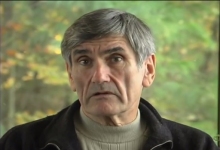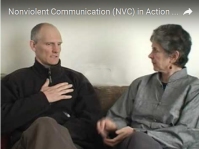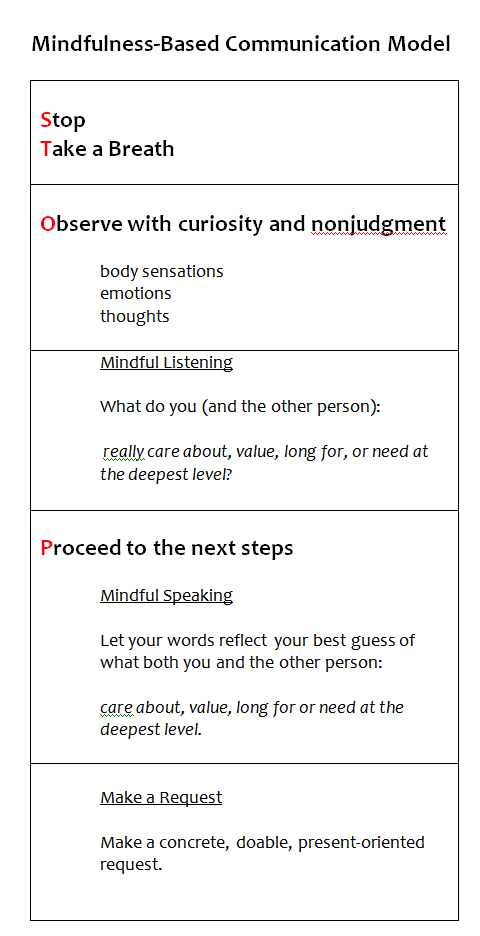This model is adapted from the work of Marshall Rosenberg and NonViolent Communication (NVC). You will find tips for teaching this model here.
Basic Assumptions
Universal human needs are defined as what sustains and motivates human life, what people care about, value, long for or need at the deepest level.
We all share the same basic human needs, and what people say or do are ultimately attempts to meet needs.
If we take time and curiosity to listen deeply to human needs, both ours and others, it cultivates compassion and connection. Out of compassion and connection comes an ability to see a larger view and find possibilities that value everyone’s needs.
Examples
In each of these examples, notice how the speaker grapples with this question:
What do both of us really care about, value, long for or need at the deepest level?
A Client – Jean Meier
 I was working as a counselor for a State agency. A new client came in and demanded to see me. The receptionist told him his appointment was for the next day. He got angry. His raised voice and physical demeanor led her to fear for her physical safety…
I was working as a counselor for a State agency. A new client came in and demanded to see me. The receptionist told him his appointment was for the next day. He got angry. His raised voice and physical demeanor led her to fear for her physical safety…
Palestinian refugee camp – Marshal Rosenberg
 “I was in a refugee camp. All The crowd had to do was hear from my interpreter that I was an American. I heard: ‘ Murderer, assassin, child killer’… I didn’t hear what he thought of me I connected to what he was feeling, what he was needing…”
“I was in a refugee camp. All The crowd had to do was hear from my interpreter that I was an American. I heard: ‘ Murderer, assassin, child killer’… I didn’t hear what he thought of me I connected to what he was feeling, what he was needing…”
Conflict with his mother-in-law: An NVC role play by Newt Bailey
 Isabella (Joya Cory) and Simon (Newt Bailey) have a rather tense conversation. Instead of getting defensive, Simon tunes into what his mother-in-law cares about and values at a level beneath the surface accusations.
Isabella (Joya Cory) and Simon (Newt Bailey) have a rather tense conversation. Instead of getting defensive, Simon tunes into what his mother-in-law cares about and values at a level beneath the surface accusations.

More Information: